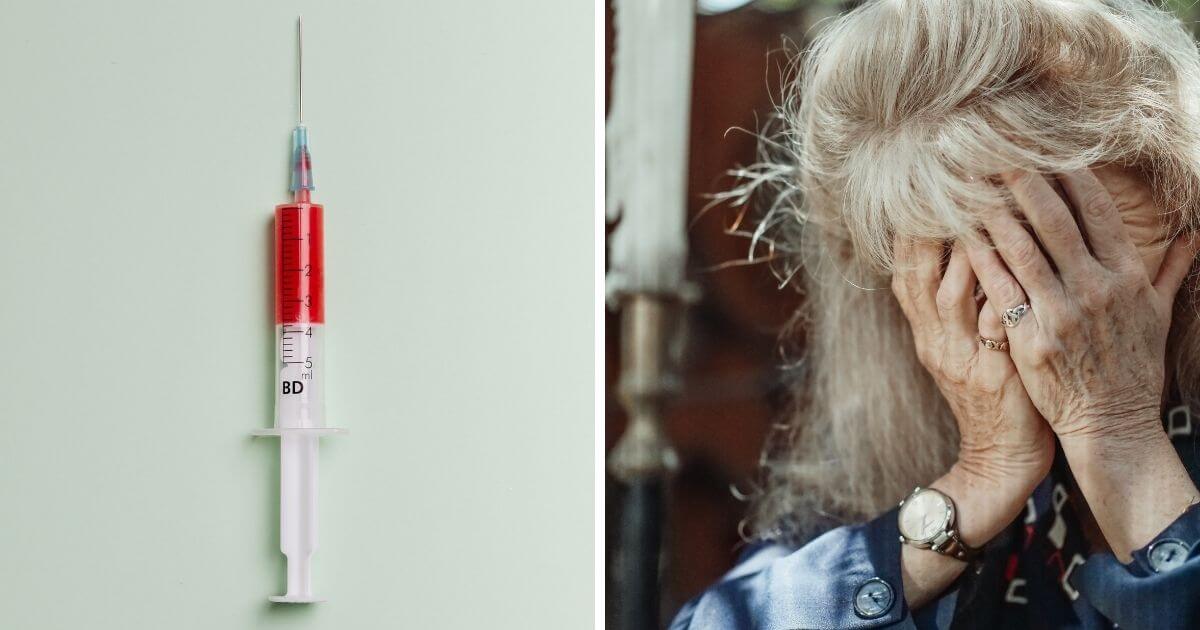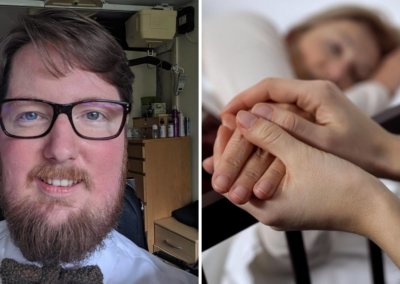Parliamentarians have uncovered a number of assisted suicide horror stories and huge problems with the assisted suicide Bill being debated in the House of Lords.
The All-Party Parliamentary Group (APPG) for Dying Well, chaired by Danny Kruger MP, has compiled a dossier on the assisted suicide legislation currently being debated in the House of Lords.
Among a number of cases that the dossier highlights, Kurt Huschle’s death particularly stands out.
It took him more than 8 hours to die
Kurt was diagnosed with incurable bile-duct cancer at 58. This illness caused him immense pain that he found hard to cope with, even with his pain medication. Living in Colorado, assisted suicide was legal and Kurt told his wife that we wanted to make use of the law. “I want to die. Will you just let me go?” he said.
Under the law, Kurt was eligible for assisted suicide as he was thought to have less than six months left to live. Subsequently, he was prescribed a cocktail of lethal drugs and found a pharmacy that was able to supply it in liquid form. They were told that the process from ingestion to death would take two to four hours.
On 16 July 2017, in the presence of a nurse, Kurt stood by his decision and started to drink the solution. However, contrary to his wife’s expectations, he did not pass away peacefully.
“With every sip he’s choking and coughing, choking and coughing”, his wife Susan said.
After 20 minutes, he began to gasp unevenly. It seemed that he had lost consciousness but more than four hours after taking the drug, he was still alive. Frightened, Susan realised that her husband might still be partially conscious and able to hear her. She then called a doctor asking for help.
That evening, more than 8 hours after ingesting the lethal drug, Kurt sat in bed, retched and stopped breathing. Susan said she had not been able to say a peaceful farewell, nor had it been the goodbye they wanted.
How often does assisted suicide go wrong?
As well as making known stories like Kurt and Susan’s, the APPG has investigated the frequency with which such events happen.
The most complete published data comes from the state of Oregon, where assisted suicide has been legal since 1997. According to the state’s annual report, of the 1,905 people who have died in an assisted suicide, data is only available for 827. Of these, 8 regained consciousness after taking the lethal drugs, there were 33 cases of ‘difficulty ingesting’ and ‘regurgitating’ the drugs, 3 seizures and 16 patients experienced unspecified complications.
There is no information on possible complications in the remaining 1,078 cases of assisted suicide in Oregon because the data is only recorded if a physician or other healthcare professional is present.
In total then, there were at least 60 cases of complications, either because the patient did not die or there was some other difficulty. As data is only available for less than half the total who died via assisted suicide, the real figure for complications is likely to be over 100. This would mean that there were likely complications of one kind or another in at least 5% of all assisted suicides in Oregon.
Assisted suicide drugs are not properly regulated
Meacher’s Bill would create something similar to the system used in Colorado and other states. It would allow the prescription of a cocktail of drugs at a lethal dose for those meeting certain criteria. The lack of availability of barbiturates has forced doctors in these states to use a cocktail of other drugs not primarily intended for this purpose.
Oregon report states: “All drug combinations have shown longer median times until death than the barbiturates… which are no longer readily available”.
The APPG dossier adds: “No medical association oversees assisted suicide and no government committee helps to fund research on the prescribed drugs… Drugs for the purpose of medical use are required to undergo a stringent approval process in order to assess patient outcomes”.
“The drugs being prescribed for assisted suicide have not undergone such assessments and it remains unclear which drug or drug combination is most effective for bringing about a quick and peaceful assisted death”.
“It will send the message that when people are ill and distressed, they should have their lives ended by lethal [doses of] drugs…”
Baroness Finlay of Llandaff, an NHS palliative care consultant, said: “There are too many stories about bad terminal care but the Bill won’t make it better —quite the reverse. That could leave patients with a terrible choice: either dying at their own hands or living longer but being forced to endure suffering that could have been alleviated”.
“It will send the message that when people are ill and distressed, they should have their lives ended by lethal [doses of] drugs, rather than doing everything possible to improve their situation and valuing them as people”.
Baroness Grey-Thompson, who won 16 Paralympian medals as a wheelchair athlete, and is a member of the APPG, said: “Assisted dying is portrayed as this Hollywood death where you just slip away . . . the reality is not like this and people need to be made aware of it”.
She went on to say that she feared what it might mean for the disabled and other vulnerable individuals if the Bill became law: “You’re not too far away from seeing this as a way of getting rid of people. Once it passes, there will be no going back”.
Right To Life UK spokesperson, Catherine Robinson, said: “Baroness Meacher has claimed that her Bill is ‘modest in scope’. This could not be further from the truth. Her Bill represents a radical departure from the very nature of medicine, which is to heal, and do no harm. Instead, her Bill redefines ‘death’ as a treatment, which it demands that doctor’s administer”.
“The Bill sets up a false choice between a painful death and an assisted suicide. But it doesn’t have to be that way. Britain is leading the world in palliative care, and rather than promoting assisted suicide, we should be championing palliative care”.












